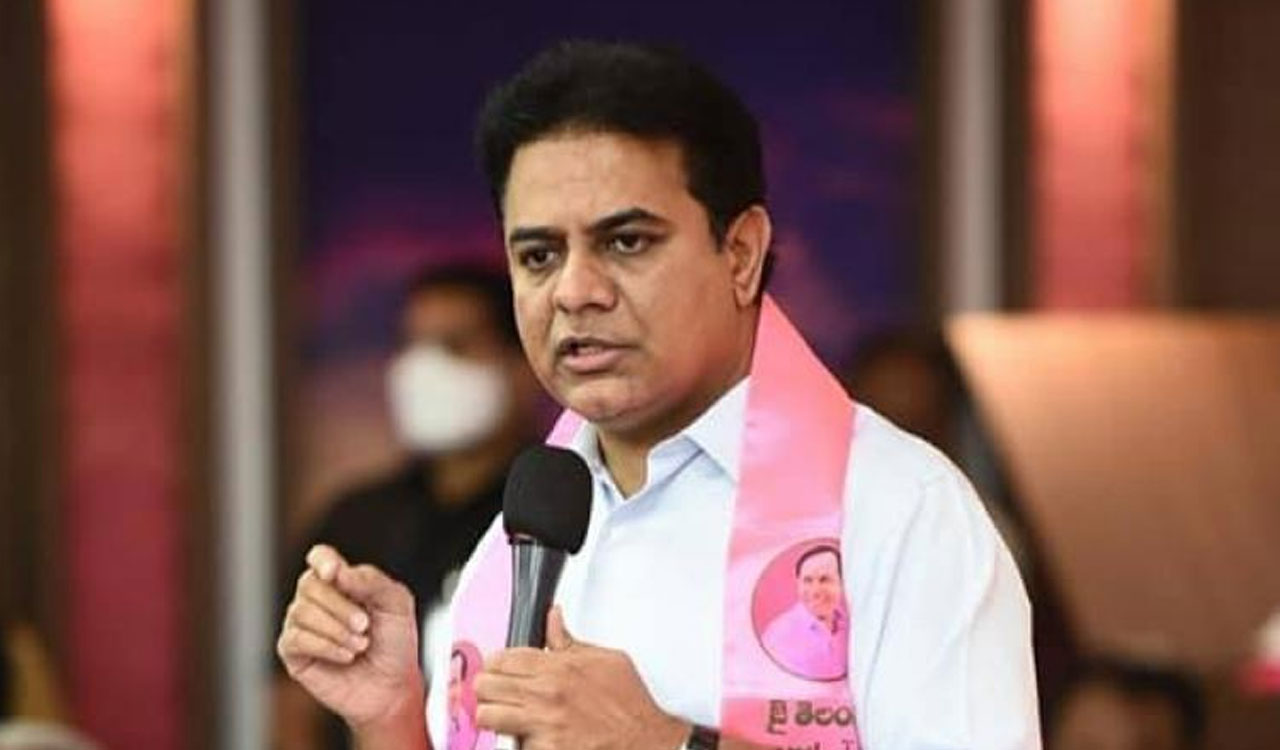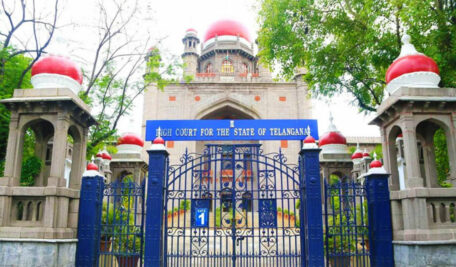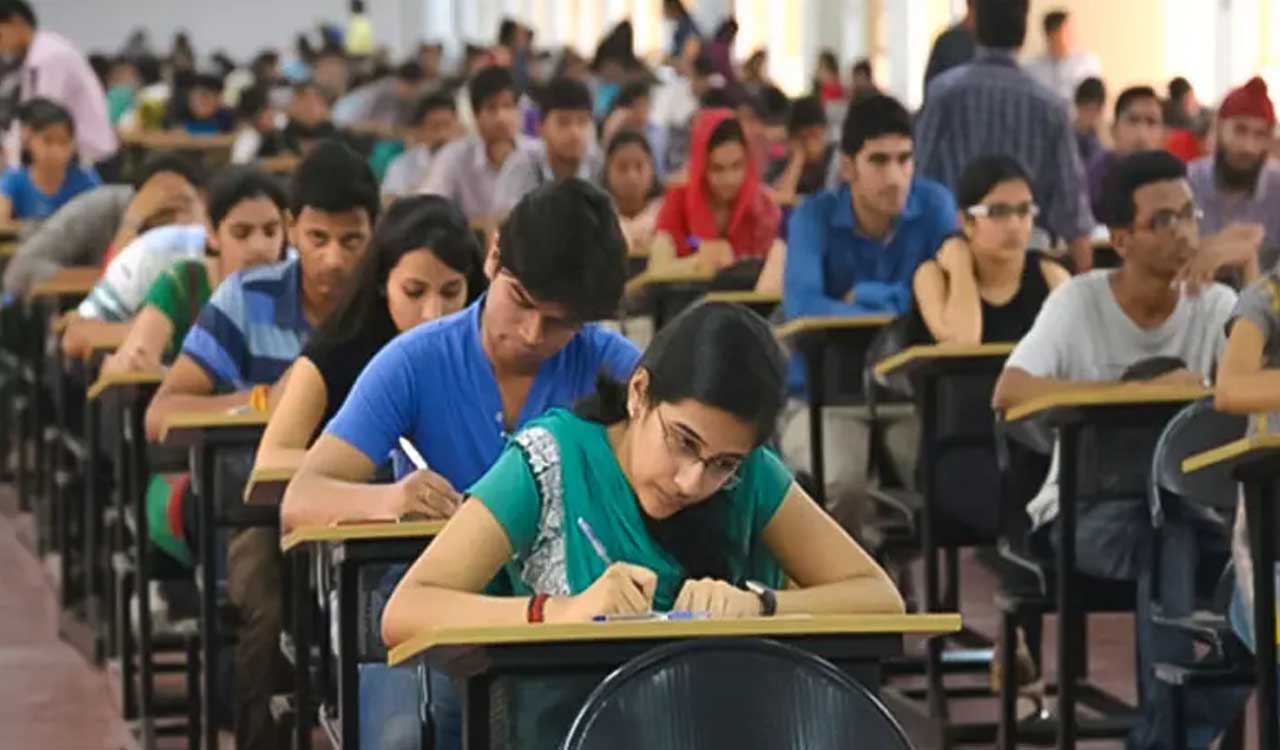ACB’s demand for KTR’s phone draws flak; hints at political targeting
Former minister’s official digital records, including emails and departmental correspondences, are accessible to the government. Yet, the sudden directive to hand over his personal phone, without citing new evidence, raises questions over the ACB's intent.

Hyderabad: The directives of the Anti-Corruption Bureau (ACB) asking BRS working president KT Rama Rao to submit his personal mobile phone in the Formula-E race case, have raised serious legal and constitutional concerns. While all official communications between the Telangana government, HMDA and the Formula-E organisers — FIA (Fédération Internationale de l’Automobile) — are already available with the authorities, and the financial transactions in the project have been clearly traced, the move to seize Rama Rao’s personal phone is being viewed with suspicion.
Observers point out that as the then Minister for Municipal Administration, Rama Rao had already provided necessary clarifications. His official digital records, including emails and departmental correspondences, are accessible to the government. Yet, the sudden directive to hand over his personal phone, without citing new evidence, raises questions over the ACB’s intent. Sources said the former Minister had already consulted legal experts in this regard and had been advised against it.
While the BRS leaders are raising suspicions of a new form of political witch-hunting, legal experts are calling the move a blatant violation of constitutional protections. BRS leaders Krishank Manne, Y Sathish Reddy and others ridiculed the ACB for seeking to examine a personal mobile phone despite it having no connection with the said case. They suspected it to be a conspiracy by Chief Minister A Revanth Reddy.
“Formula-E race is not a personal affair, but a government business. It was conducted as per the Cabinet decision and the transactions also were made transparently through banks. The government has access to all official communications and transactions. The same officials are working in this government as well. Why would they need the personal phone of Rama Rao, unless they are conspiring to plant some incriminating material in the phone and arrest him or at least confuse people ahead of the local body elections,” Satish Reddy asked.
Krishank Manne said the Congress government, which flashes the Constitution, was violating Constitutional rights and mocking the Supreme Court. He found fault with the ACB demanding the BRS working president hand over his mobile phones.
“While the Formula E case is of the amount transferred from a government bank account to the Formula-E organisers’ bank account, what would be the need for the BRS working president’s mobile phone to ACB? The Supreme Court has circulated guidelines to all State governments that no investigating agency – be it the police or the ACB – can search or seize digital devices. But here in Telangana, the Congress government has been seizing mobile phones of Opposition leaders,” he said.
Meanwhile, legal experts argue that even a search and seizure should be backed by judicial orders and clear evidence that the alleged offence involved a digital device directly. Anything less risks turning investigative tools into instruments of political harassment. “Article 20 bars compelling an individual to be a witness against himself, and Article 21 protects the right to privacy. Forcing someone to hand over a personal device without a court order, merely based on suspicion, is both unethical and unconstitutional,” said Srikanth Chintala, advocate of Telangana High Court and founder of the Indian Lawyers Association.
The Supreme Court, in its interim direction dated November 7, 2023, in the Foundation for Media Professionals vs union of India case, had asked the Centre to frame guidelines on digital seizures. Nearly seven months later, the union government has yet to issue those guidelines.
The ACB’s action is akin to tactics allegedly used by central agencies against political opponents elsewhere, and has drawn comparisons to the widening misuse of search-and-seizure powers to entangle leaders in endless litigation. If this trend continues, experts warn, it may set a dangerous precedent, weaponizing suspicion to bypass due process. It is argued that a person’s individual and fundamental rights cannot be put at stake based on someone else’s suspicion.
Related News
-
Telangana HC hears plea over alleged extortion bid to withdraw PIL
-
Telangana HC quashes cases against Osmania University Arts College principal
-
Telangana High Court grants relief to two Inter students ahead of board exam
-
Telangana High Court allows State, Centre three weeks to file counters on plea against GHMC split
-
Archer and Jacks lead England to win over Sri Lanka
2 hours ago -
India’s batting exposed in heavy loss to South Africa
2 hours ago -
Sports briefs: Ayaansh, Adhya emerge champions in sub-junior tennis
2 hours ago -
Siddhanth-Donski emerge doubles champions at Delhi Open
2 hours ago -
Opinion: Work from anywhere, belong nowhere
2 hours ago -
Editorial: Towards democratising the Artificial Intelligence
3 hours ago -
Doha to host ICC Board meetings in March
3 hours ago -
Degree student dies at swimming pool in Alwal
3 hours ago




